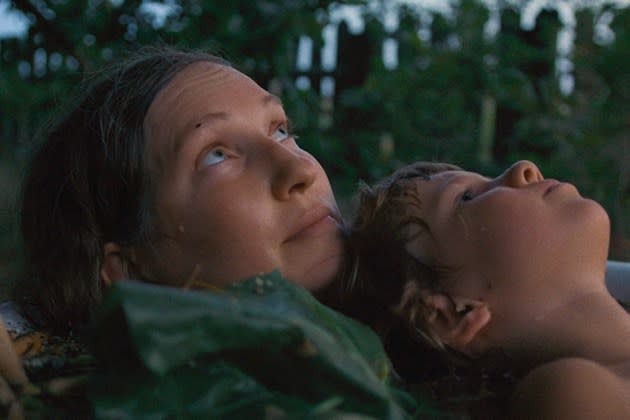Lidia Duda’s Doc ‘Forest,’ About Belarus-Poland Border Crisis, Boarded by Rise and Shine: ‘Silence Equals Acceptance’ (EXCLUSIVE)
- Oops!Something went wrong.Please try again later.
- Oops!Something went wrong.Please try again later.

Berlin-based Rise and Shine World Sales has acquired international rights to Lidia Duda’s documentary “Forest,” which will have its world premiere at the Thessaloniki Documentary Festival.
Previously noticed at Ji.hlava, where it picked up the New Visions Award. Duda’s film focuses on a Polish family living right next to the oldest European forest, trying to create a safe haven for their children. But soon, they start noticing refugees stranded in the wilderness, unwelcome both in Poland and Belarus.
More from Variety
“From the beginning, we felt a strong connection to the story,” Rise and Shine manager Anja Dziersk says.
“The encounters of the family with the refugees, in the midst of the forest, bring world politics down to a very personal experience. It reflects on all of us: ‘What would I do in the same situation?’ Lidia Duda manages to create a film which is subjective yet highly relatable.”
The Polish director – also behind “Fledglings,” about the boarding school for visually impaired and blind children, awarded at Locarno – adds: “When this humanitarian crisis started, I saw comments supporting both sides, including the policies of the Polish government. I try not to judge anything too hastily, especially if I haven’t experienced it myself, so I just asked myself: ‘If I had a house there, would I help the refugees or not?’”
“Forest” is produced by Lumisenta Film Foundation and co-produced by Lonely Production, Canal+ Poland, EC1 Łódź – City of Culture, Anna Bławut-Mazurkiewicz (Studio Filmowe Rabarbar) and Lidia Duda. It’s co-financed by the Polish Film Institute and the Czech Film Fund.
The infamous border crisis, which saw thousands of migrants attempting to cross into Poland from Belarus only to be forced back, was previously tackled in Agnieszka Holland’s Venice-winning “Green Border,” which caused massive controversy in its native Poland.
“I was rooting for ‘Green Border’ from the very beginning. I believe that silence equals acceptance and Agnieszka Holland decided to speak up. It took undeniable courage,” says Duda.
“She is the most recognizable Polish director in the world. It was unimaginable, the harassment she has experienced. What happened to our sensitivity, our empathy? Why are we unable to talk?! Art is all about asking questions and the less convenient they are, the more relevant it makes them. If the collective answer is to ‘crucify’ the creator, these are sad times indeed.”
Regardless of her film’s future reception at home, Duda never intended to “distort reality.”
“I can turn away, I can close my eyes, but that won’t make it disappear. So far, nothing has changed [on the border]. Every day, people who live in these villages have to decide what’s more important: Complying with the law, forbidding them from helping the refugees, or doing it anyway because they are human beings.”
Instead of focusing on border guards, volunteers or activists, she wanted to show an ordinary family whose “world is suddenly turned upside down.”
“With my cinematographer Zuzanna Zachara Hassairi we went to Białowieża Forest to look for our protagonists and one day, we met Asia, Marek and their three children: Marysia, Ignacy and Franek. I was very keen to have children in the film, because I appreciate their power and wisdom as narrators. They filter our adult world.”
Child’s perspective also came in handy when exploring the question of faith.
“They can openly ask what we should believe in. As an atheist, I have always envied believers. God absolves them in their time of need, while I keep carrying my sins. We, Poles, are such a religious nation, but somewhere along the way we lost our God and we forgot about the Ten Commandments. The more churches we have, the less pure we are. It scares me a little.”
In the end, the shoot took over two years.
“We weren’t sure we would be able to bring it to completion, but we did. It’s a film full of difficult questions and uneasy answers, because this family pays a price for every decision they make,” says Duda, hoping that “Forest” will be understandable also to viewers unfamiliar with the situation.
“There is fear of danger, fear for the future of your children, but also this family’s inner strength, which allows them to survive and support each other during the most difficult moments. I am convinced that each of us can find it too in order to react to the injustice happening right next to us.”
Best of Variety
Sign up for Variety’s Newsletter. For the latest news, follow us on Facebook, Twitter, and Instagram.
